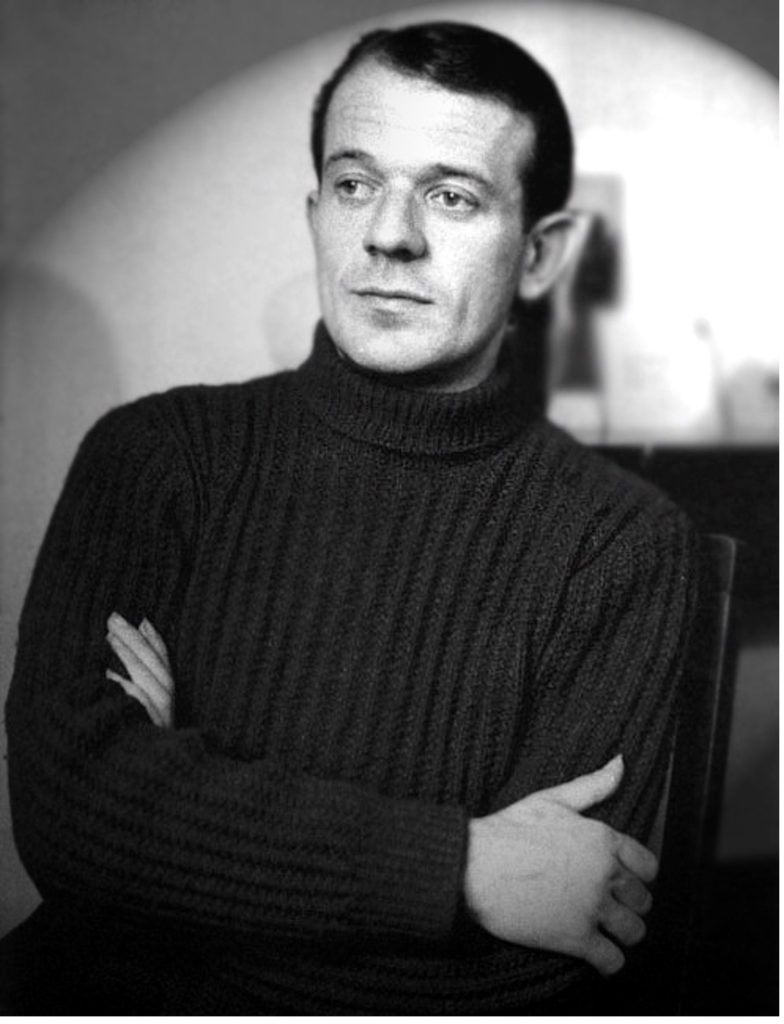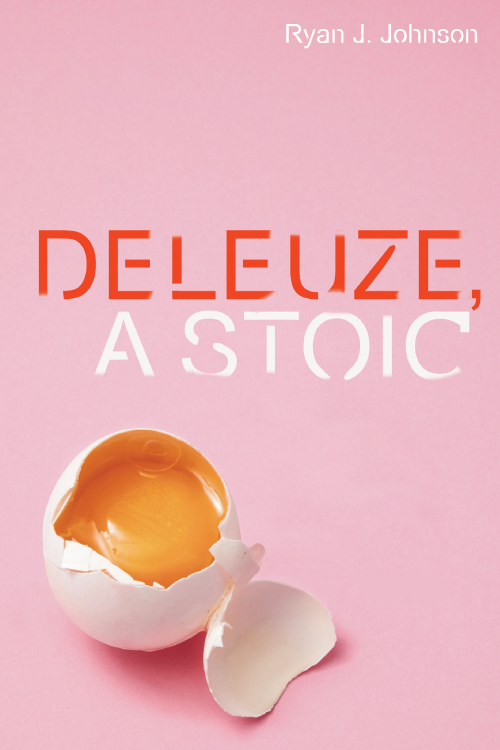
by Ryan J. Johnson
Stoicism seems to be everywhere these days – bestseller lists, email blasts, social media posts, corporate training sessions. Stoicism seems just another self-help trend.
But I think they all get it wrong. Stoicism is strange, very strange. I’d even call it perverse. This perversity is what I show in my book, Deleuze, A Stoic.
To understand how strange it is, I draw upon Gilles Deleuze’s taxonomy of ancient philosophical orientations. There are the pre-Socratics, thinkers of depth; the Platonists, thinkers of height, and Stoics, thinkers of surface. To this, we add the Aristotelians, thinkers of inwardness.
First, the pre-Socratics, beginning with the legendary death of Empedocles. According to Diogenes Laertius, Empedocles ‘set out on his way to Etna; then, when he had reached it, he plunged into the fiery craters and disappeared, his intention being to confirm the report that he had become a god.’ Putting his metaphysics into practice, Empedocles jumped into the volcano, aiming to sink his body back into the primordial elements of nature from which it was birthed. Deleuze characterizes other pre-Socratics as equally thinkers of depths, with the difference being the element selected as the deepest of the depths: Thales’ water, Anaximenes’ air, Heraclitus’ fire, etc. This metaphysical orientation is a ‘turning below,’ to the darkest matter, which what I call pre-Socratic subversion.
Platonism moves in the opposite direction, up towards the heights. In the Republic, Deleuze see the ‘philosopher is a being of ascents,’ of escaping the cave and climbing toward the light (LS 127). Even after escaping the cave, the Platonist ascends higher still, up the divided line, into the clouds, or even above. Way up there, Plato locates the truly true beings, the so-called Forms. Like the sun, situated at the apex of the world, the Form of the Good establishes a vertical ontological order and upright intelligibility. Socratic dialectics is an education in how to ascend to the heights, to follow the ‘flight of ideas’ (LS 128). I call this Platonic conversion.

Though Deleuze skips Aristotle, I see in him a variation on Platonic verticality. With important caveats, Aristotelianism is generally oriented upward along a vertical chain of being. For Aristotle, every thing and every way of being depends on a primary substance, which orients Aristotle towards the ‘insides’ of things. Aristotle thus ‘takes down’ what was, for Plato, above, placing it within the worldly particulars, and ‘brings up’ the depths of the pre-Socratics. The result: interiority or height-within. Scholars call it hylomorphism. I call it Aristotelian inwardness.
The Stoics, however, are thinkers of surface. The Stoics do not simply return to the depths of primordial matter, nor do they erect a hierarchy reaching up into the heights, either above or within. Instead, they develop a new kind of ontological orientation – flatness. The Stoics are so strange.
Though Deleuze sometimes suggests that it was Plato himself who provoked the overturning of Platonism, he also says that ‘the Stoics…are the first to reverse Platonism’ (DR 68, 244; LS 7). But even this is not quite right. For the Stoics do not reverse Platonism. They pervert it, along with all their other philosophical predecessors. Stoicism initiates a philosophical perversion.
Deleuze, A Stoic begins with these four ancient philosophical orientations:
| Ancient School | Orientation | Movement | Operation |
| Pre-Socratics | Depth | Descent | Subversion |
| Plato/Socrates | Height | Ascent | Conversion |
| Aristotle | Interiority | Inward | Inversion |
| Stoics | Surface | Per-scent | Perversion |
And it ends with five corresponding forms of ancient philosophical comedy (I add a fifth because one cannot speak of ancient comedy without including Diogenes):
| School | Orientation | Operation | Comedy |
| Pre-Socratics | Depth | Subversion | Slapstick |
| Plato/Socrates | Height | Conversion | Irony |
| Diogenes the Cynic | Rawness | Reversion | Sarcasm |
| Aristotle | Interiority | Inversion | Wit |
| Stoics | Surface | Perversion | Humor |
To grasp the whole strange Stoic story, you must read the book. But to keep you interested, I will leave you with an aside on laughter that Deleuze made in a 1980 lecture.
In Spinoza, he says, there is ‘a species of very kind laughter, the laughter of a man who speaks freedom and power.’ To me, this sounds very Stoic. For in Stoicism, freedom and power come together through a paradoxical notion most call the eternal return.
On the one hand, the Stoics think we are determined to act exactly as he have acted the last time we lived this life, and the infinitely many times before and after that. At the same time, however, there is the unavoidable imperative to act at this instant. We must act right now, right here, whether we want to or not. We cannot act and yet we cannot not act. Sounds perverse, doesn’t it? But maybe also all too true?
The Stoic response to this impossible imperative of action is to laugh and yet to will exactly what happens as it happens – has and always will happen. Stoicism need not be so serious or self-helpy. Amor fati is, after all, a very funny, if perverted, affair. Rather than to gnash teeth, complain, or conjure up another, better world, beyond the one and only cosmos we must love and live, Stoic humor and its surface orientation tells us to affirm fate and crack up with laughter the whole time, on infinite repeat.
Thus every dawn, the Stoic egg cracks open, the yolk and the albumen spill out into the void, and everything burns up in cosmic fire. Then not long after, the world will begin again and again, the Stoics cracking up with laughter each and every time. It is pure philosophical perversity, and in the best possible way.
Want to keep up to date on our latest Philosophy books? Sign up to our mailing list.
Own Johnson’s 2 books, Deleuze, A Stoic and The Deleuze-Lucretius Encounter, with 30% off using code JOHNSON30 on our book site.
About the book

Ryan J. Johnson
Shows how Deleuze’s engagement with Stoicism produced many of his most singular and powerful ideas
- Reveals a lasting influence on Gilles Deleuze by mapping his provocative reading of ancient Stoicism
- Unearths new possibilities for bridging contemporary philosophy and classics by engaging a vital yet recently rising area of scholarship: continental philosophy’s relationship to ancient philosophy
- Introduces the untranslated Stoic scholarship published by pre- and post-Deleuzian French philosophers of antiquity to the English-reading world
About the author
Ryan Johnson is Associate Professor of Philosophy Elon University and Visiting Professor of Philosophy at the University of Toronto. Ryan is author of two monographs — Deleuze, A Stoic (Edinburgh UP, 2020)and The Deleuze Lucretius Encounter (Edinburgh UP, 2016) and several edited volumes, including Contemporary Encounters with Ancient Metaphysics (Edinburgh UP, 2017) and Nietzsche & Epicurus (Bloomsbury 2020). He recently finished a co-written (with Biko Mandela Gray) monograph, Phenomenology of Black Spirit (forthcoming with Edinburgh UP), which stages a dialectical parallelism between Hegel’s magnum opus and Black thinkers from Frederick Douglass to Angela Davis. In between, Ryan is writing a fourth book, Three American Hegels, which explores the reception of Hegelianism by three seminal yet neglected American philosophers: Henry C. Brokmeyer, the forgotten first English translator of Hegel’s Wissenschaft der Logik; Horace Williams, the first philosophy professor at the first U.S. public university, UNC-Chapel Hill; and John William Miller, the influential teacher of the metaphysics of democratic acts. Ryan is also completing a co-editing another volume entitled Contemporary Encounters with Ancient Practice (Edinburgh University Press). Finally, Ryan is bringing to completion several articles on themes such as Hegel and lynching, Nietzsche and James Baldwin, and historical exclusion in philosophy and musicology, as well as translating a book of French philosophy by Émile Bréhier and serving as the co-editor of a journal issue of Studies in Pedagogy on the theme of “Teaching Philosophy as a Way of Life.”





